TV business tycoons and entrepreneurs have ruled the fictional boardrooms and businesses for decades. So if you're looking for tips on how to be rich, classic TV sitcoms are a gold mine of information -- even if that information is buried in a lot of jokes and sometimes kind of bonkers situational comedy.
Today's "TV Lesson" Breakdown:
- Who Were Some of These TV Tycoons?
- If somebody owes you money, collect it.
- Don’t get in the habit of lending money to just anyone.
- Cut back your spending in a recession.
- Teach your kids how to make money – and you’ll have more money, too.
- Keep your money safe
- Be greedy
- Be ruthless
- Know when to cut unnecessary costs
- Utilize your bank
- Sell or barter assets that aren’t making you money.
- Be willing to take calculated risks.
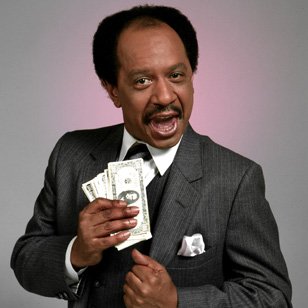
Who Were Some of These TV Tycoons?
I’ll say right at the outset that it’s crazy to look back and realize how few female business tycoons on TV there have been, on sitcoms or dramas. You’ve got Victoria Barkley on The Big Valley, and… um…?
In recent years on TV, though, I still can’t think of many women who have been portrayed as tycoons, though I’m sure there have been some. Loretha “Cookie” Lyon (Taraji P. Henson) on Empire comes to mind.
But there’s really no shortage of wealthy tycoons. Just to bring up a few:
- Phillip Drummond in Diff’rent Strokes
- George Jefferson on The Jeffersons.
- The Clampetts on The Beverly Hillbillies, though the brains behind the money on the show was arguably the banker, Milburn Drysdale.
- In Dallas, we had J.R. Ewing.
- From 1955 to 1960, there was a one-hour TV drama series called The Millionaire, about a guy who – in every episode – gave a new person a million dollars, and the audience would see what these lucky people would do with the money.
- Phillip Banks on The Fresh Prince of Bel-Air wasn't really a businessman but an incredibly wealthy judge. Still... close enough.
- Mr. Howell, on Gilligan’s Island. As he once memorably said, “It is rather difficult being rich. If it wasn't for the money, I'd rather be poor.”
So my thinking is... Powerball, schmowerball. If you really want to be rich, watch a bunch of TV and pick up money lessons from fictional millionaires.
Granted, I admit, after a lifetime of sifting through decades of monetary lessons that I've picked up from TV, I’m not rich yet. But maybe these tips will pay off eventually – and if not for me, maybe for you. So if you’re looking for suggestions on how to be rich, then sit back, and let’s talk about what money-making tips we can pick up from channel surfing.
If somebody owes you money, collect it.
Rich people, at least on TV, don’t get rich by giving people handouts or loans without strict terms. I frankly think Milburn Drysdale on The Beverly Hillbillies often went too far, but there’s no question that he was a successful man, being bank president and all. And if somebody owed his bank money, he went after it. So I can only conclude that that's one of the tenants of becoming rich.
In any case, I’m thinking of the time he dictated a letter to Miss Jane, telling her to write, “And furthermore, if you are late on your mortgage payment one more time you will be thrown out into the street.”
That’s when Jane Hathaway interjected with: “Chief, she's eighty-five years old and in a wheelchair!”
“Oh, I'm sorry, I didn't know,” Mr. Drysdale said. “Change that to read, ‘You will be wheeled out into the street.’”
Don’t get in the habit of lending money to just anyone.
Philip Drummond (Conrad Bain), the dad in Diff’rent Strokes, mentioned this credo of his at least a couple times throughout the series. For instance, in the episode “Big Business” from the second season, Arnold asks, “Hey, Dad, any chance of borrowing a little extra bread from you?”
“Sorry, I never lend money to friends. It ruins their memory,” Mr. Drummond says. (It’s kind of a moment of lousy writing; Arnold is his son, and not a friend. But you get Mr. Drummond’s point.)
Another time, while playing a game of Monopoly in “The Loan,” the ninth episode of season 3, Mr. Drummond says that he makes exceptions in lending money to family and friends (ah, some character growth), but “in general, it’s not good business to lend money to anybody unless they have collateral.
“Co-whateral?” asks Arnold (Gary Coleman).
“That means something valuable you own, Arnold,” Willis (Todd Bridges) says.
“Right, like stocks, bonds, real estate,” Mr. Drummond says. “Of course, if you can’t pay the loan back, then they keep the collateral.”
“Oh, I get it,” Arnold says. “Like the Gooch in school. He loans money to the kids.”
“Well, what if you can’t pay it back?” Kimberly (Dano Plato) asks.
“Then, like Dad says, he takes the collateral,” Arnold says. “Usually, your nose or your ears.”
(Words of wisdom we can learn from: Don’t lend money to friends. And stay away from anyone nicknamed the Gooch.)
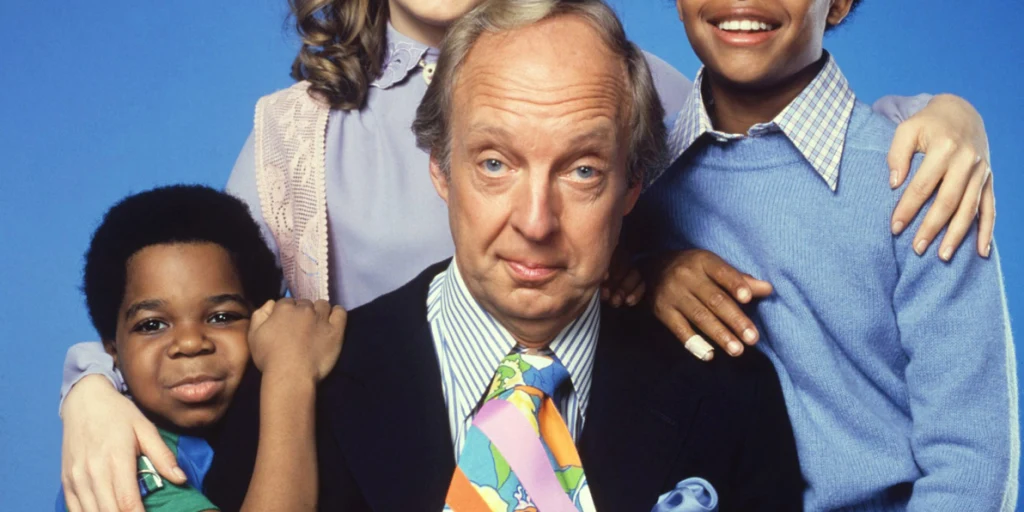
Cut back your spending in a recession.
Yeah, you probably don’t need Diff’rent Strokes to tell you this, but if you were to ask for advice about getting through a recession, Phillip Drummond would be a good mentor. In one episode that feels kind of timeless, Arnold says, “Dad, we're all broke. You know, everything costs so much now.”
“I know, I know,” Mr. Drummond says, sympathetic. “Every other day at my company somebody wants a raise. I can't afford it. You know, they say in the papers we're headed for a recession or a depression.”
“What's the difference?”
“Well, Arnold, in a recession, you have to tighten your belt. In a depression, you don't have any belt to tighten. You lose your pants,” Mr. Drummond says.
Yes, the laugh track had to work extra hard on that “zinger,” but embedded in that advice is the wise counsel to tighten your belt and not spend so much if you’re worried your income will be affected by a recession.
Teach your kids how to make money – and you’ll have more money, too.
Children can be expensive, and if you want to be as rich as Phillip Drummond, that means not necessarily buying your kids every new gadget comes along. In the eighth season of Diff’rent Strokes, in “Arnold’s Job,” Arnold wants his dad to buy him a new camera – just $119.95.
“You save your own money and buy it for yourself,” Mr. Drummond advises. “If I buy it for you, it won’t mean as much.”
“You’re right, Dad,” Arnold agrees. “But I’ll make the sacrifice.”
Mr. Drummond comes up with a pretty good compromise. He tells Arnold that if he raises half of the money, he’ll pay for the other half.
It is good advice. Raising children is expensive, and if you can get them to pull some of their own weight, you will stretch your dollar forward. Probably best to not ask your five-year-old to go out and get a job, but by the eighth season, Arnold was getting up there – by now, Gary Coleman was 18 – and so Mr. Drummond’s reasoning was pretty sound. I'd like to think that if Diff'rent Strokes had kept airing for several more seasons, we would have seen Arnold and Willis and Kimberly graduating college and starting their own businesses and becoming just as rich as their father.
Keep your money safe
Jack Benny, the actor, played himself as a character in his TV series The Jack Benny Show. He was ridiculously cheap – and the numerous jokes about the money he kept in his vault were, of course, just jokes. But there is still good advice worth following in what Benny did, to keep his cash protected. You get the sense that Jack Benny would have never been a victim of identity theft.
In one episode of The Lucy Show, one of Lucille Ball’s sitcoms during the 1960s, her character Lucy Carmichael tries to land Jack Benny as a client for the bank she works at. She shows him all of the lengths her bank will go to, if they protect Jack Benny’s money, and he is impressed.
Jack Benny: Oh, boy. This quicksand is the cleverest idea I’ve ever heard.
Lucy Carmichael: I’m glad you like it. You know, I think it’s even better than your shark-filled moat.
Jack Benny: And cheaper! You don’t have to feed them.
Be greedy
Of course, Mr. Howell from Gilligan’s Island was rich beyond belief, and so we know he has good tips for accumulating wealth. And, unfortunately, pure greed is one way to become rich. That’s how Mr. Howell gets a gold mine in the ninth episode of the series.
He and Gilligan stumble on a gold mine, and Mr. Howell’s first instinct is to not tell any of their fellow castaways.
Mr. Howell: Don't you know what gold does to people, Gilligan?
Gilligan: Uh-huh. It makes them rich.
Mr. Howell: It makes them greedy.
Gilligan: Greedy?
Mr. Howell: Greedy.
Gilligan: What can we do, Mister Howell?
Mr. Howell: Well, we’re going to keep this gold mine our secret.
True, Mr. Howell’s greed backfires on him later in the episode, but before he got to the island, it seems likely that the millionaire’s greed served him well in making his fortune.
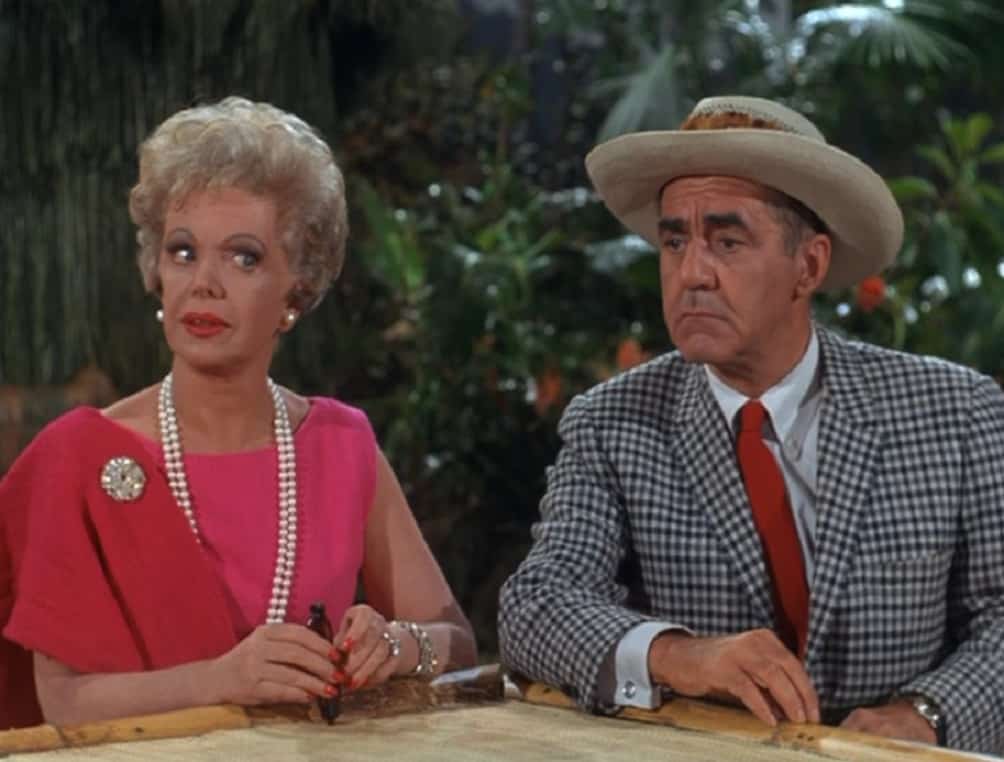
Be ruthless
Also another quality that I know we agree we shouldn’t aspire to. But if you’re looking to become deliriously wealthy, like Mr. Burns on The Simpsons, maybe you’ll have to be. As he once explained, it was a ruthless, driven quality that was the secret of his success: “Family, religion, friendship. These are the three demons you must slay if you wish to succeed in business.”
Know when to cut unnecessary costs
This is good idea for anybody, rich or poor or somewhere in between. Still, Mr. Burns sometimes took things too far. “Now, a few more details about this year's company picnic,” he once said. “It's at the plant. No food will be served, the activity will be work, and the picnic is cancelled."
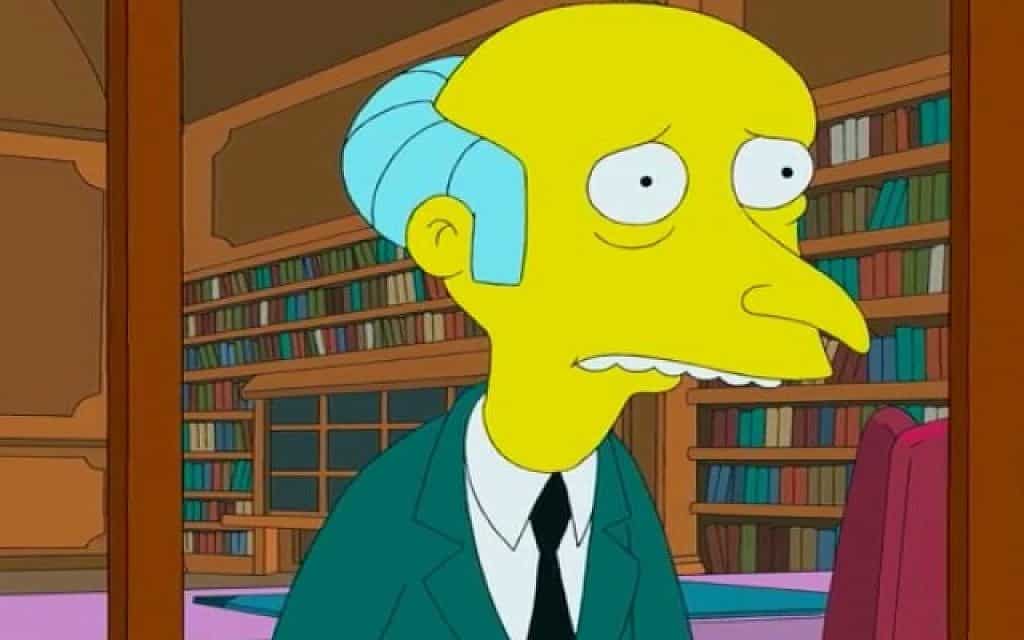
Utilize your bank
Most of us have a bank and thus don't really need this advice -- we already follow it -- but there are people who don’t trust banks. I guess if you’re one of those people and have millions of dollars, ignore this advice. But if you don’t have a bank account and aren’t rich, then get a bank account!
Later in the Gilligan's Island gold mine episode, and once everybody knows about the gold mine, the castaways start charging Mr. Howell exorbitant amounts of money for anything he needs, stuff in the past they would have given to him for free.
At first, Mr. Howell isn’t unnerved and opens his checkbook and prepares to write a check to the Skipper and Gilligan.
Mr. Howell: Now, gentlemen, what is the name of your company?
Skipper: Oh, no checks please, Mr. Howell.
Mr. Howell: No checks?
Gilligan: No banks. (He means there are no banks on the island.)
Skipper: Money will do just fine.
Mr. Howell: Well, I haven't used money in the past twenty-five years.
Mr. Howell wasn’t the only TV millionaire who relied on a bank instead of carrying around a lot of cash in his wallet (and, yes, we often saw Mr. Howell on the series with cash, what he would have called petty cash). In the next decade, George Jefferson, the affluent dry cleaning businessman on The Jeffersons, would remark, “Rich people never even see money. All they know is, ‘Charge it,’ ‘I’ll sign for it,’ and ‘Sue me.’”
Sell or barter assets that aren’t making you money.
Mr. Howell does this in the thirteenth episode of Gilligan's Island, “Three Million Dollars More or Less.” There’s a lot of the usual silliness when Gilligan wins a three million dollar bet with Mr. Howell, but a lot of great financial lessons, too.
First, don’t bet a lot of money that you aren’t prepared to lose. But when Mr. Howell does lose three million dollars to Gilligan, he tricks Gilligan (see: Be Greedy) into accepting ownership of one of the millionaire’s corporations, the Tehachapuku Oil and Mining Corporation. It’s a bummer for Gilligan since the land the company is on doesn’t appear to have any oil on it, but it works out well for Mr. Howell, since he has managed to keep three million dollars and instead give away something that is utterly worthless. It’s two hundred acres of land in the Dust Bowl.
That is, until they hear on the radio that oil was discovered, and Gilligan is, in fact, rich. Of course, Mr. Howell then schemes to get the deed back, and he does, and we learn there is not actually oil on the land. A drill had punctured the tank of an oil truck that was buried in a dust storm.
Still, as noted, plenty of other “how to get rich” lessons embedded in this episode. Mr. Howell mentions the importance of a tax shelter, and he signals that networking can help anybody get ahead when he says to Gilligan (when trying to get him to take the deed to the oil company), “Believe me, we millionaires have to stick together.”
And if you’re wondering how Mr. Howell got stuck with this worthless oil company in the first place, he didn’t actually buy it.
“It was a wedding gift from Lovey’s father,” Mr. Howell tells the castaways.
“Thurston, you know how embarrassed Daddy was when he found out what ‘Dust Bowl, Oklahoma’ really was. He thought he had given us a football stadium.”
Be willing to take calculated risks.
That’s often what making money is all about. If you invest money, you could lose it, and so you take a calculated risk -- and invest in something that probably will pan out well. You start a business, knowing you could lose your shirt, but also knowing that if you succeed, you could success beyond your wildest dreams. George Jefferson, for that reason, is an excellent role model for anyone looking to make a fortune -- one of the few TV tycoons The TV Professor actually recommends you emulating. He is a great role model as a businessman because he is willing to work hard for his money. (He has a little work to do, though, before anyone tries to make him out as a role model for keeping his temper.)
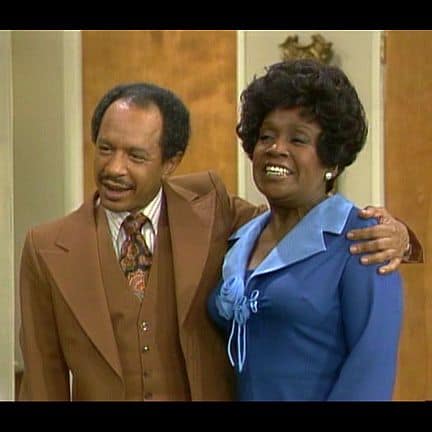
In season six, we learn, in a flashback episode, that George Jefferson got the money to rent his first dry cleaning store – which George originally wanted to name Handy-Dandy Cleaners – by selling his and Louise’s car as a down payment.
“Sold our car? George, how could you?” Louise asks.
“It wasn’t easy, Weez. Getting 300 bucks for a ’55 Chrysler with bald tires took a lot of talking. Oh, boy!”
(In an All in the Family episode, it’s explained that George took a $3,200 insurance settlement check from a car accident and used that to start Jefferson’s Cleaners. Still, both scenarios could be true.)
In any case, George Jefferson invested in himself – and with a lot of hard work, eventually he and Louise and Lionel started moving on up.
And for those of us not willing to do that, I guess there’s always Powerball.
Where to watch all of these shows (at the time of this writing): Well, a bunch of shows were mentioned in this article. But if it helps, you can find a few episodes of The Jeffersons for free on Pluto TV and TubiTV.com.
Articles similar to this how to be rich blog post: You might enjoy reading about what you can learn about not making money by watching The Honeymooners.

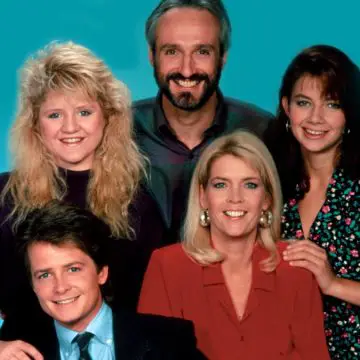
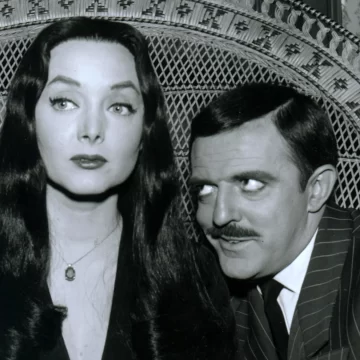
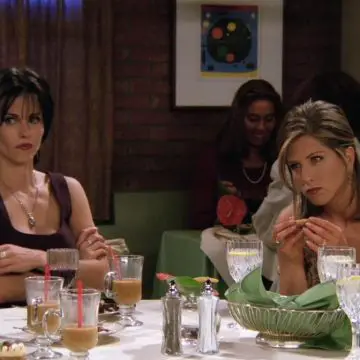
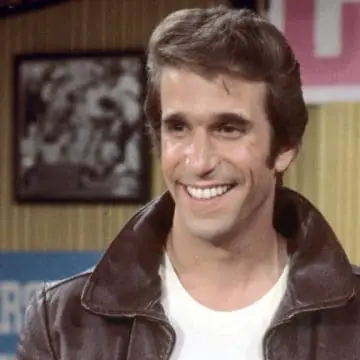
Leave a Reply